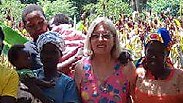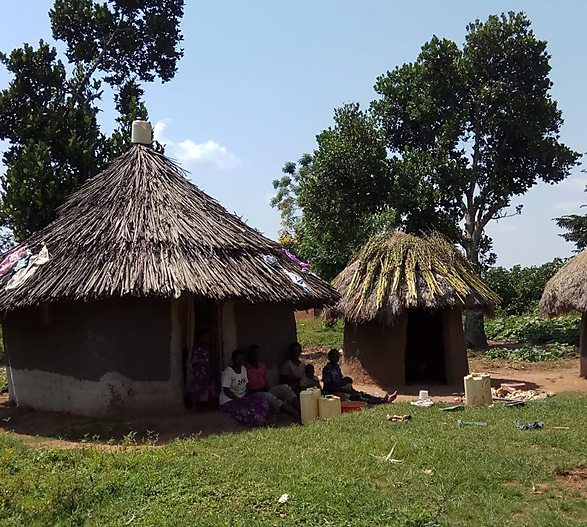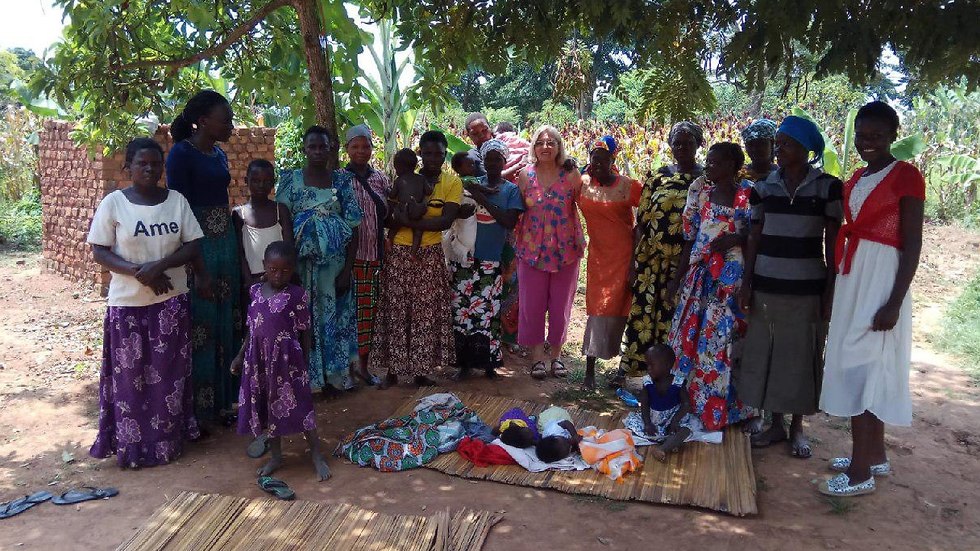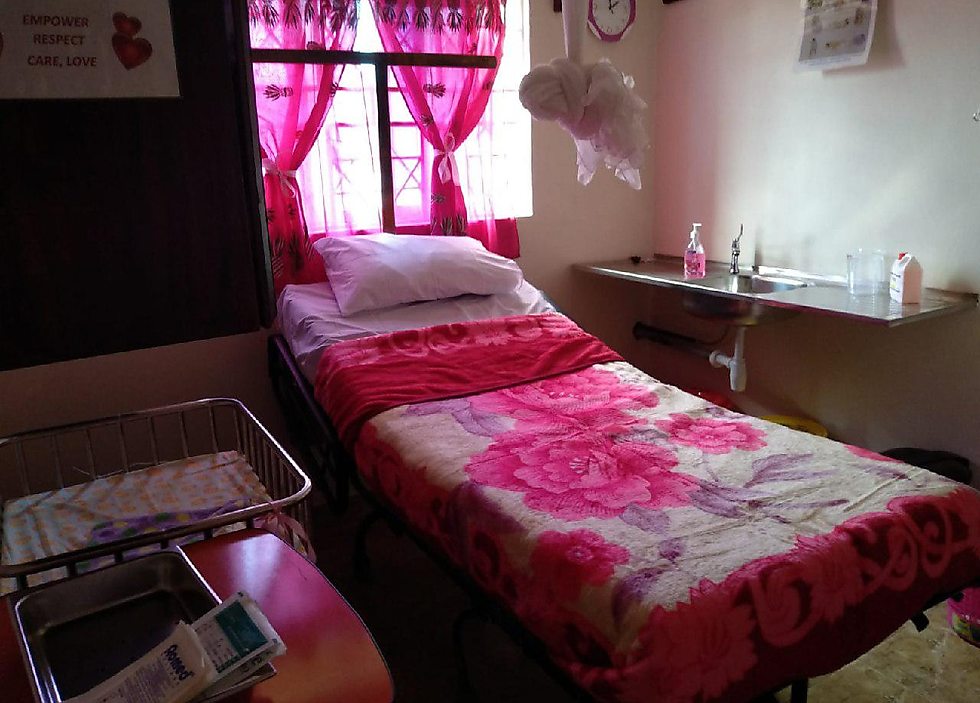

A first Jewish maternity center in Uganda
An Israeli midwife, shocked by the poor conditions of the Abayudaya Jewish community in Uganda, builds the first maternity center for the benefit of the community; Since its opening, the center assisted in two births—the first the night after its opening; The Jewish community, who now has 2,000 members, has been demanding official recognition from the State of Israel for years, to no avail.
The Tobin Health Center, where the new maternity center is located, welcomes any Ugandan woman. Shemesh, the chairman of the Adat Shalom Emanuel congregation in Rehovot, has enlisted her professional background as a midwife to help the residents of Abayudaya.
It all began about a year ago, when Shemesh arrived in Uganda for the first time and discovered the poor conditions of the centers treating pregnant women.
"I arrived in the villages of the Jewish community in Uganda," she told Ynet. "I spoke to the community's key figures, and asked about was happening there."
According to Shemesh, "they do not have obstetrician services at all. The conditions in the governmental hospital are terrible, and private hospitals are very expensive. This cannot even be compared with Israeli standards."
"There are no monitors and no delivery rooms, many women are still giving birth in their homes, and diseases like malaria, tetanus and TB, that the Western world almost eradicated—are still endangering Uganda's residents, including pregnant women and newborn babies," she said
"The situation is dire, and the villagers have no money at all. Women give birth in their homes, made out of wicker and mud, while lying on dirty mattresses. Therefore, babies are at risk of getting infected the minute they are born. If a woman bleeds heavily during labor, she might die and no one will be there to help her," Shemesh stated.
Israeli midwives to assist African counterpart
The visit prompted Shemesh to promote a fund-raising campaign, which eventually raised $12,000 for the recently opened Shifra and Puah maternity center. A mass funding campaign has also been established for the benefit of the project (donations can be made here).
"The rabbi of the local Jewish community, Gershom Sizomu, and the directors of the medical center allocated four rooms for the use of the birth center," Shemesh said.
"We bought beds, baby cribs, sets of medical equipment, medicines, pulse monitors. We set up an array of equipment. We bought an incubator, something they had never seen before. When the local women and midwives came in, they simply could not believe their eyes," she added.
The opening ceremony of the center was a touching event that included song and dance, as customary by the community. Since its opening, the center assisted in two births—the first the night after its opening.
"In the meantime, the center is being run by local midwives, and we hope to establish a system in which midwives from Israel and around the globe come to the center on a monthly basis to reinforce and teach local midwives new delivery techniques and new methods for treating pregnant women," Shemesh concluded.
Abayudaya population estimated at 2,000
The African Jewish community Abayudaya was founded by an army officer, Semei Kakungulu, a Christian who converted to Judaism at the beginning of the 20th century, and was followed by many.
He declared his community was Jewish and circumcised his sons, the members of the community, and himself. When Kakungulu died in 1928, he left most of his land to the Abayudaya community.

The members of Abayudaya practice circumcision, the Torah and its laws, keep kashrut and observe Shabbat. Many of the Abayudaya children were born to families who identified as Jewish and raised their children according to Jewish tradition, but this was not always the case.
In the 1970s, Idi Amin, then president of Uganda, persecuted the community, and as a result, the community dwindled to a few hundred Jews. Even in the 1980s there were violent attempts to eradicate the community—in exactly the same place where a new synagogue now stands.
Today, the Abayudaya's population, who now has stronger ties with the government, is estimated at 2,000 members.
The community has its own health center, two schools, a bakery, a shared community, a guest house, as well as an afforestation plan.
In order to feel like genuine members of the Jewish community, Abayudaya has been demanding official recognition from the State of Israel for the past several years. However, despite the fact that the Jewish Agency recognized the community as Jewish in 2009, the Interior Ministry has yet to decide on their religious status, stating that it is a "complicated situation."
The community itself began to officially convert to Judaism only in the last 20 years, after receiving the assistance and sponsorship of the World Conservative Movement.
In 2009, about a year after completing five years of Conservative rabbinical studies, one of which in Jerusalem—the current community leader, Rabbi Gershom Sizomo, converted about 250 people from Uganda and neighboring countries to Judaism.

















